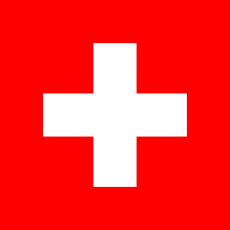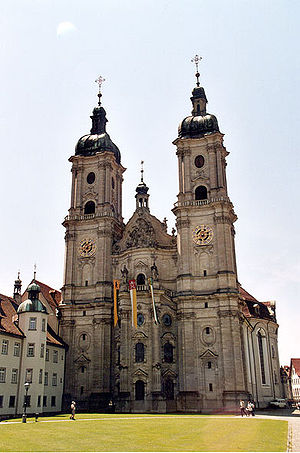Wikijunior Europe: Switzerland

Switzerland is a small country in western Europe. It shares borders with Germany, Austria, Italy, France and Liechtenstein. The capital city is Bern. Other big cities are Geneva and Zurich. Switzerland is not a member of the European Union. The currency of Switzerland is the Swiss Franc.
Switzerland's History
[edit | edit source]
Switzerland has a long history of neutrality — it has not been at war since 1815 — and hosts many international organizations, including the Red Cross, and the World Trade Organization. In 1920, Switzerland joined the League of Nations, and in 1963 the Council of Europe. Switzerland was not invaded during either of the World Wars. During World War II, the Germans planed on attacking Switzerland, but they never did.

neutrality — when a country doesn't take sides in a war or battle


Switzerland's Geography
[edit | edit source]With an area of 41,285 square kilometres (15,940 sq mi), Switzerland is a relatively small country. The population is about 8.4 million. Switzerland is one of the most mountainous countries of Europe. More than 70 percent of its area is covered by the Alps. Switzerland's highest mountain is Monte Rosa at 4,634 metres. Switzerland is on the border of the largest lakes in Europe.
Summers tend to be warm and humid at times with periodic rainfall so they are ideal for pastures and grazing. The winters in the mountains alternate with sun and snow, while the lower lands tend to be more cloudy and foggy in winter.
Switzerland's People
[edit | edit source]
The population of Switzerland is just over 8 million. Roman Catholicism is the most practiced religion. Almost 45 percent of the population practices Roman Catholicism. Muslims, Orthodox Christians, and Judaism are other practiced religions.
Switzerland is multilingual and has four national languages: German, French, Italian and Romansh. Other spoken languages are Spanish, Portuguese, and Turkish. Switzerland has a literacy rate of almost 100 percent. Education is required from ages 5 to 16 years of age.

literacy rate — the percentage of adults in a country who can read and write
Like many European nations, the Swiss are big fans of football and the national team is widely supported. Many Swiss also follow ice hockey. Over the last few years several Swiss tennis players, like Roger Federer and Martina Hingis, have been multiple Grand Slam singles champions. One of the world's best current ice skaters is Swiss Stéphane Lambiel. Switzerland is also the home of the successful sailing team Alinghi. Other sports where the Swiss have been successful include fencing, whitewater slalom, ice hockey, beach volleyball, and skiing.
Switzerland's Sights
[edit | edit source]Tourists are drawn to Switzerland's climate and landscapes, in particular for skiing and mountaineering. Because of tax differences between Switzerland and neighbouring countries, Switzerland is popular for shopping trips. Being a major world finance centre also brings in a lot of business travellers.
There are eleven UNESCO World Heritage Sites in Switzerland including: the Old City of Bern, the Abbey of St. Gall and Monte San Giorgio.
| Wikijunior Europe • Intro • EU • Geo • People • Language • Facts • Quiz | edit | ||

